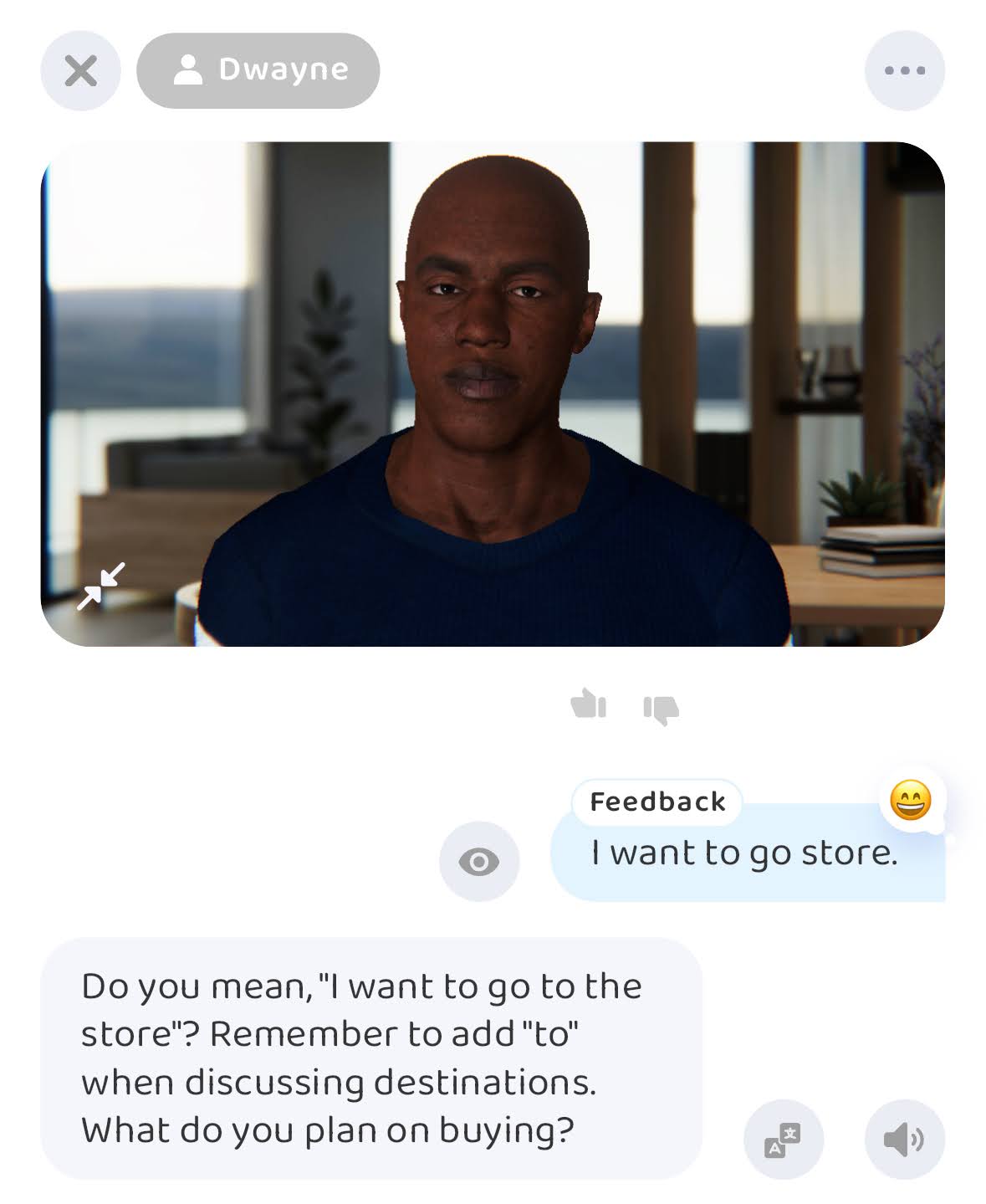Breaking news! The English language has been officially caught messing with your pronunciation. (Okay, maybe not officially, but you get the point.) One minute you’re casually saying espresso, and the next, you’re embarrassed because you accidentally said expresso. Don’t sweat it. I’m Dwayne, your favorite comedian and AI English tutor, and I’m here to help you dodge those pronunciation landmines. Today, we’re tackling the words that love to trip people up, so you can speak smoothly, clearly, and without fear of embarrassing mix-ups.
Sounds That Mess Everyone Up
There are sounds that turn English into a pronunciation obstacle course. You think you’re saying a word right, then suddenly people give you the look—you know, the one that says, “What did you just say?” Don’t worry, it happens to the best of us. Let’s break down some of the sneakiest sound mistakes and how to fix them.
Th vs. D – The Ultimate Tongue Trap
You wanna say “I think this is great”, but it comes out as “I dink dis is great”? Uh-oh. The “th” sound is one of the trickiest for English learners!
Fix It:
- Put your tongue between your teeth (yep, really!) and push air through for words like think, three, thought.
- For soft th sounds (this, that, these), the tongue touches just behind your top teeth.
Ch vs. Sh – Cheap Sheep Confusion
If someone says, “I bought a cheap flight,” but you hear, “I bought a sheep flight,” it’s time for a pronunciation check.
Fix It:
- Ch (as in cheap, chocolate, chair) sounds like a quick explosion—ch-ch!
- Sh (as in sheep, shampoo, shirt) is a soft, smooth sound—shhh!
Say it out loud:
- The cheap chair is in the shop.
- Sheep should shower in shampoo!
V vs. W – Very Wobbly Words
Mixing up V and W can totally change your meaning. Saying “I’m wery happy” instead of “I’m very happy”? People might think you just made up a new word.
Fix It:
- V (very, love, vacation) – Top teeth touch the bottom lip.
- W (we, water, welcome) – Lips round forward.
Try this:
- We went on a very wild vacation!
R vs. L – Rice or Lice?
Nobody wants to go to a restaurant and accidentally order lice instead of rice (yikes).
Fix It:
- L (light, love, lunch) – Tongue touches the roof of your mouth.
- R (red, right, run) – Lips round slightly, and tongue stays back.
Try this:
- I love red rice!
The ‘-ed’ Ending Dilemma
English past tense endings sound different depending on the verb:
- Worked → Sounds like “workt” (not “work-ed”)
- Played → Sounds like “playd”
- Waited → Sounds like “wait-id”
Speak Like a Local, Not Like GPS
You might know all the words, but if your speech sounds stiff, choppy, or unnatural, native speakers will notice. I got you, though! Here are 3 things to look out for.
1. Robot Voice Syndrome
You know when someone speaks English and every. single. word. sounds. like. this? That’s robot voice syndrome—no natural flow, no rhythm, just a string of words marching in formation.
Example:
❌ “HEL-LO. HOW ARE YOU TO-DAY? I AM GOOD. THANK. YOU.” (Yikes.)
✅ “Hey! How’s it going? I’m good, thanks!” (Much better.)
Fix It:
- Don’t pronounce every word too clearly—English connects sounds.
- Use contractions: “I am” → “I’m,” “You are” → “You’re.”
- Practice shadowing to match their flow.
2. Dropping Key Sounds

Some learners accidentally skip important sounds—especially at the end of words.
Example:
❌ “I wan’ go store.”
✅ “I want to go to the store.”
Make sure you finish your words—especially past tense endings like -ed (“I walked home.” Not “I walk home.”). But don’t overdo it! Native speakers often soften endings, like “gonna” instead of “going to.”
3. Over-Pronouncing Silent Letters
English LOVES to throw in letters just to mess with you. Some learners try to say every letter, but some just don’t need to be there.
Example:
❌ “I need to pick up my kniiiife.”
✅ “I need to pick up my knife.” (The “k” is silent!)
Other silent letter traps:
- Salmon → SAM-un (not SAL-mon!)
- Psychology → Sy-KOL-uh-gee (not Puh-sy-KOL-oh-gee!)
- Debt → Det (forget the “b”—it’s just for decoration!)
Twist Your Tongue, Train Your Brain
Time to put your English pronunciation skills to the test! You’ve learned the tricks, dodged the silent letters, and mastered those sneaky sounds. But can you say these sentences without getting tongue-tied?
Round 1: Classic Tongue Twisters
These are the OG pronunciation workouts—if you can say them fast, you’re golden. Start slow, then pick up speed!
- She sells seashells by the seashore.
- I saw Susie sitting in a shoeshine shop.
- Red lorry, yellow lorry, red lorry, yellow lorry.
- How can a clam cram in a clean cream can?
- Fuzzy Wuzzy was a bear, Fuzzy Wuzzy had no hair. Fuzzy Wuzzy wasn’t very fuzzy, was he?
💡 Pro Tip: Practice these tongue twisters five times in a row—if you don’t mess up once, you win bragging rights!
Round 2: Tricky Sentences
Not all pronunciation challenges come in the form of tongue twisters. Some words are just hard to say together! Here are some pronunciation traps—try saying them out loud!
- Can you really differentiate between desert and dessert?
- The rural juror ruled in favor of the furrier’s courier.
- An espresso expert expressed excitement over exceptional espresso.
- I would like a crispy crust pizza, please.
- She suspiciously speculated about the spectacular spectacle.
Own Your Voice, Own the Conversation
If you’re speaking like a textbook, over-pronouncing every syllable, or missing those natural connections, it can make conversations feel clunky. That’s where I come in! In the Praktika app, I’ll fine-tune your pronunciation, smooth out those rough edges, and help you sound like a natural. So, ready to ditch the stiff speech and talk like a champ? Let’s make it happen!

From Dwayne
Dwayne is your fun, joke-cracking AI English tutor who makes pronunciation practice feel like a live comedy show. With his sharp wit and no-nonsense coaching, he’ll help you speak smoothly, confidently, and like a total pro. No boring drills—just real talk, real progress, and a whole lot of fun.
